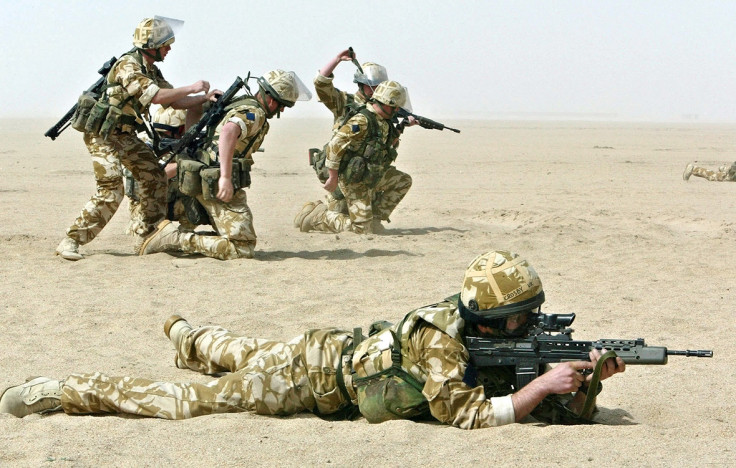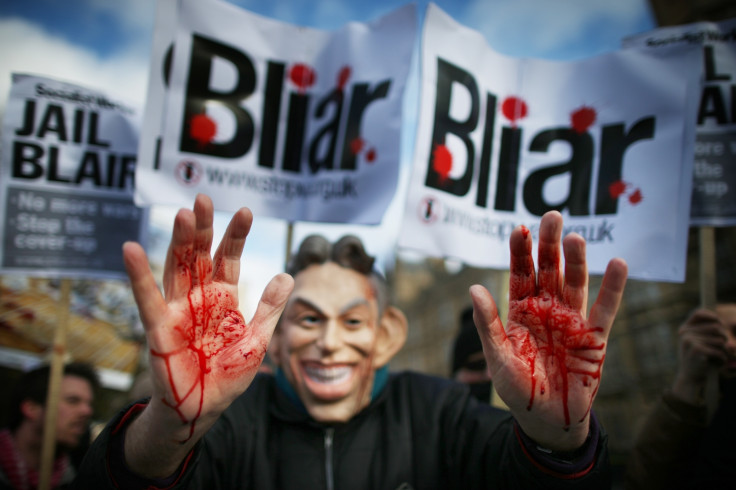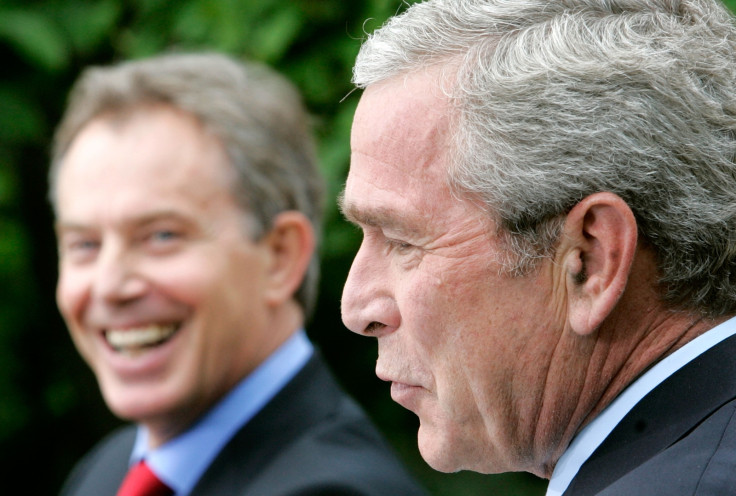Chilcot inquiry: What is the long-awaited report into the Iraq war all about?
Report into UK's involvement in the Iraq war will be released on Wednesday 6 July.
The Chilcot inquiry, the long-anticipated official report into Britain's involvement in the 2003 Iraq war, will be published this week. The 2.6 million-word document will be released around 11am on Wednesday 6 July, nearly seven years after the inquiry was announced.
Here is everything you need to know about what will be one of the most important reports in the history of British politics.
What is the Chilcot inquiry?
The inquiry was launched in 2009 by former prime minister Gordon Brown to investigate the UK's decision to go into war in Iraq in 2003. Chaired by retired senior civil servant Sir John Chilcot, the report is estimated to have cost over £10 million of taxpayers' money.
It will examine political decisions from 2001 to 2009, including the decision to go to war, whether British troops were sufficiently prepared, the military action and whether there was adequate planning for the aftermath. The key point of the report is to identify "lessons that can be learned", so governments can act accordingly if a similar situation were to arise in future.

Why is a report being published?
Joining the US-led invasion of Iraq by the UK in March 2003 is one of the most controversial foreign policy decisions in British history. An anti-war motion was defeated in the Commons by 396 to 217, a majority of 179, despite a considerable Labour rebellion.
Millions took to the streets to protest against the war, but military intervention was launched 72 hours later, without explicit authorisation from the United Nations. This led to a long-running debate over whether the invasion of Iraq was lawful.
The main reason cited by Tony Blair for going to war was to remove chemical and biological weapons allegedly held by Iraq. A 2002 dossier which found "beyond doubt" that dictator Hussein had WMDs also stated such weapons could be ready for use within 45 minutes.
Troops had the sole objective of disarming the country of weapons of mass destruction and removing Hussein, but claims Iraq had WMDs were never substantiated - casting further doubt over the legitimacy of the invasion.
The death toll of the UK invasion was high, with 179 British service personnel and thousands of Iraqi civilians killed. A study published in the journal PLOS Medicine estimated the direct and indirect deaths attributable to the war in Iraq between 2003 and 2011 at around half a million. Although Hussein was removed from power, the invasion failed to stabilise the country, which has led to years of sectarian violence in the aftermath of the invasion.

When will it be published?
The inquiry, led by Sir John Chilcot, will deliver its report around 11am on Wednesday 6 July. He will make a public statement about the report's findings at the Queen Elizabeth II Centre in central London, after which the 12-volume document will be published online on the Iraq Inquiry website.
Hard copies of the report will cost £767 each, but will be issued for free to family members of soldiers who died in the Iraq war. A 150-page executive summary will be available for £30.
Why has the inquiry taken so long?
When the inquiry was launched in 2009, it was expected to take no longer than two years. It has taken nearly seven, longer than British troops were stationed in Iraq, which has led to stinging criticism from relatives of those killed as well as politicians.
One of the reasons for the delay was the vast scope of the report and inquiry objectives. Other more contentious reasons for the delay included clashes between the inquiry panel and the government over what classified material could and could not be referred to or published alongside the report.

In a statement made last August, Sir Chilcot said the report's interminable delay was partly attributable to the complicated protocols in requesting for classified documents, which included correspondence between the then prime minister Tony Blair and the former US president George W Bush.
"This has taken a considerable time. Some documents have been received only this year. The declassification process continues," he said at the time.
The British legal practice of Maxwellisation, which allows those due to be criticised in an official report to respond prior to its publication for fairness and accuracy, also led to extensive delays.
Will Tony Blair face legal consequences?
Anti-war campaigners have long-called for Blair to be put on trial for war crimes over his involvement in leading the UK into war in Iraq. Although his role in the war is expected to be heavily criticised, lawyers at the International Criminal Court have ruled out the possibility of the former prime minster facing trial for war crimes because the decision to go to war is outside the remit of the ICC, according to a Telegraph report. Individual soldiers may still face trial if evidence of abuse or torture is proven in the report.
Chilcot report in numbers
Seven: Years since the Chilcot Inquiry was launched
2,578: Days between 15 June 2009, when the inquiry was announced by Gordon Brown, and 6 July 2016, when the report will finally be seen by members of the public
10 million pounds: Estimated cost of the inquiry
2.6 million: Number of words in the report
Two: Number of times Tony Blair was called to give live evidence before the inquiry
150,000: Government documents believed to have been scrutinised for the report.
More from IBTimes UK
© Copyright IBTimes 2025. All rights reserved.





















